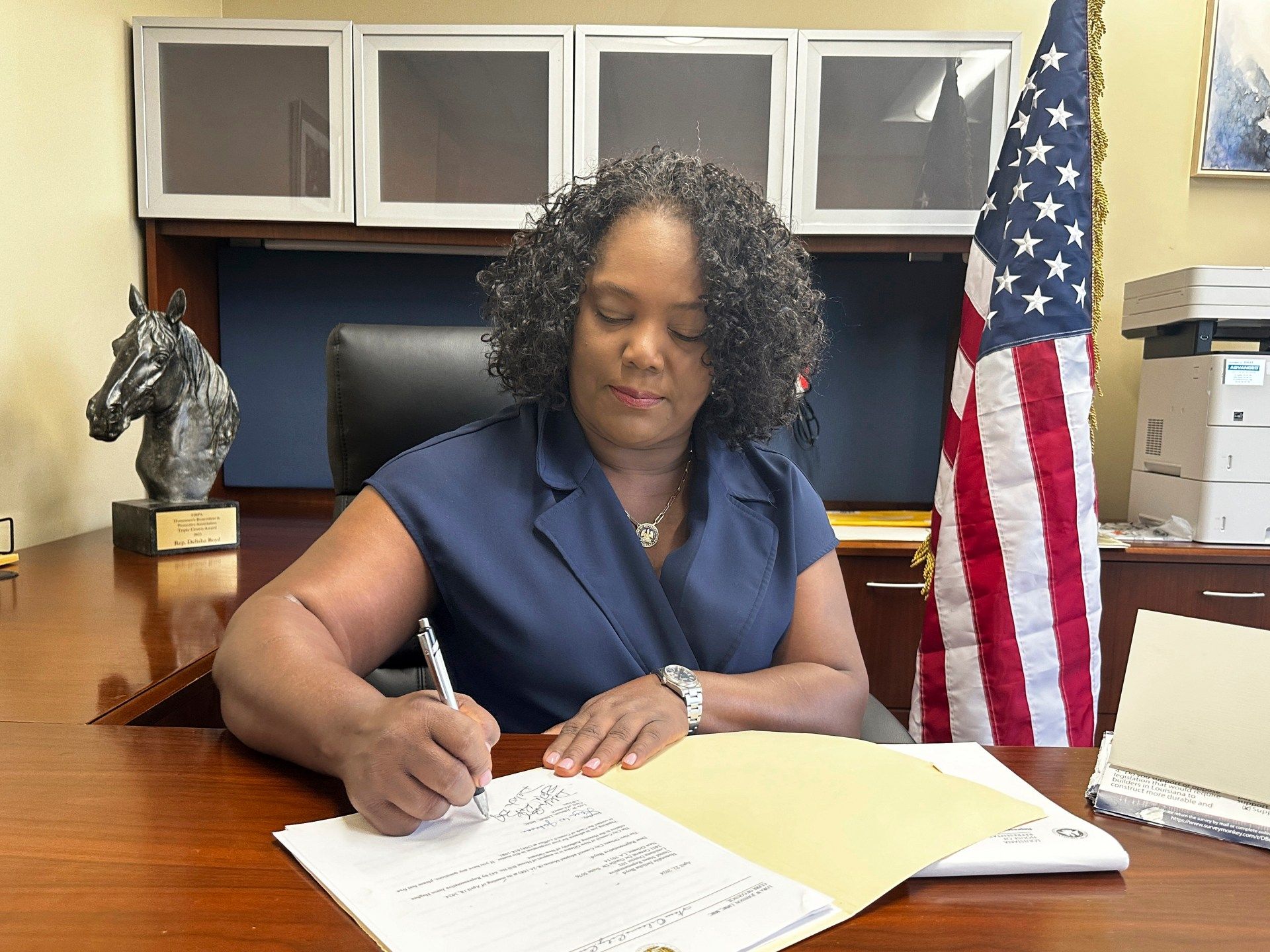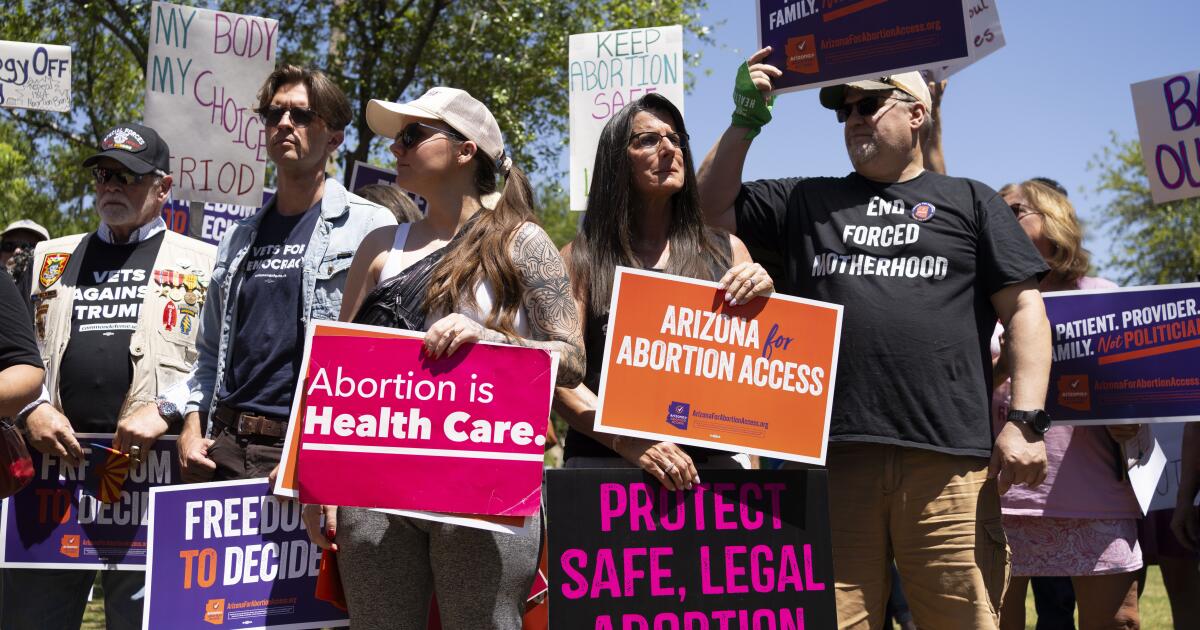Baton Rouge, Louisiana – Louisiana has become the first US state to make surgical castration a criminal punishment.
The new law, which took effect Thursday, allows the court to order surgical castration — the removal of a man's testicles or a woman's ovaries — as punishment for adults convicted of first- or second-degree aggravated rape in cases involving child victims under the age of 13.
Some states already mandate chemical castration, a reversible procedure, as punishment, but only Louisiana requires surgical castration.
The move comes amid a series of “tough on crime” laws passed this year by Louisiana’s conservative supermajority and signed by Republican Gov. Jeff Landry, who took office in January.
Critics, however, warn that such laws are radically punitive and ultimately ineffective in preventing crime.
Among those who have spoken out against the law is George Annas, director of the Center for Law, Ethics and Human Rights at Boston University, who called the measure “anti-medicine” and unconstitutional: “It just doesn’t make sense.”
Legal challenges anticipated
Louisiana and several other states, including California and Florida, already have laws mandating chemical castration for certain sex crimes.
That procedure usually involves injections of Depo Provera, a birth control drug that temporarily reduces testosterone in both men and women.
But even that procedure has its detractors. The Food and Drug Administration has never approved the drug for treating sex offenders, and critics charge that it puts doctors in the position of meting out punishments for the criminal justice system.
Laws like these have already been repealed in Oregon and Georgia and declared unconstitutional in South Carolina.
But unlike chemical castration, surgical castration is permanent. Advocates like Annas have raised questions about whether surgical castration violates the U.S. Constitution’s ban on “cruel and unusual punishment.”
Annas warns that the law is also unconstitutional, as it denies the right to reproduction and the right to physical integrity. Under Louisiana's new law, an offender can refuse the procedure, but if he does so, he will receive an additional sentence of between three and five years in prison.
“If you can get out of jail by voluntarily offering your testicles, that is coercive,” Annas said.
He believes the law will not survive inevitable legal challenges from human rights groups.
“It is patently unconstitutional,” Annas said. “There is no way that any judge in this country, even in Louisiana, would consider this a valid punishment.”
Giacomo Castrogiovanni, a lawyer who runs the reentry program at Loyola University’s Legal Clinic, described the new law as “very aggressive” and agrees it will face legal challenges.
“I think it will be a very strong challenge,” Castrogiovanni said, but he is not as sure as Annas that he will succeed in overthrowing the law. “I really don’t know what will happen. It will be interesting.”

Questions of effectiveness
But beyond its legal merits, the surgical castration law has drawn scrutiny over its effectiveness in combating sexual crimes.
Annas argued that the law would simply be ineffective. “It is very difficult to find a doctor who thinks this makes any medical sense,” he said.
The impulse to commit sexual violence, he explained, “is not necessarily related to how much testosterone you have.”
Dr. Katrina Sifferd, a criminal justice researcher and former legal analyst at the National Institute of Justice, also expressed skepticism. “There are claims sometimes that this is going to rehabilitate, deter or incapacitate,” she said. “And that doesn’t seem to be the case.”
Sifferd explained that people who commit sexual crimes against children do so for many different reasons: “trauma, aggression, need for love, all kinds of things” that castration would not address.
And castration does not necessarily reduce sexual drive or prevent erections.
“There is no scientific evidence that this is going to ‘work’ to save someone. And it certainly isn’t going to cure the person of being a pedophile,” Annas said.
Sifferd, for her part, said she understands the reluctance to protect the rights of people who have committed serious crimes against children.
But he stressed that corporal, or physical, punishment should not be part of the U.S. criminal legal system.
“The criminal justice system has to maintain its moral authority and every punishment that is applied has to be justified,” he said. “Otherwise, what we allow the state to do is a really slippery slope.”

A punitive approach
The new law highlights long-standing concerns about the punitive nature of Louisiana's criminal justice system.
Louisiana has been called the “prison capital of the world.” It has the highest incarceration rate of any state in a country that already outpaces all other democracies in terms of the proportion of people in prison.
Of every 100,000 Louisiana residents, approximately 1,067 are locked up in jails, prisons and detention centers.
Louisiana's surgical castration law goes into effect as part of a series of laws that create even more crimes to prosecute.
Among the laws taking effect Thursday is a measure that makes it a crime to stay within 25 feet (7.6 meters) of a police officer after warning him or her to move away.
Another law will punish the possession of abortion drugs without a prescription with up to five years in prison. Another will eliminate parole.
Experts who spoke to Al Jazeera largely interpreted the new castration law as a republican effort.
Attorney Castrogiovanni described it as “a new implementation of conservative policies,” which tend to reflect more punitive approaches to tackling crime. He noted that until recently, Louisiana had a Democratic governor who could veto some of the most controversial right-wing bills.
However, the surgical castration bill passed by wide margins in both chambers of the state legislature. In the state House of Representatives, it passed by a vote of 74 to 24, and in the Senate, it won 29 votes, easily defeating the nine votes against it.
Among its supporters were Democrats. In fact, two of them were the authors of the bill.

A personal battle
One of the co-authors was state Rep. Delisha Boyd, who spent the same legislative session unsuccessfully championing bills representing more traditional Democratic priorities — protecting gay rights and reproductive access, for example.
She even drew on her own experiences to argue that Louisiana's abortion ban should include exceptions for rape and incest.
Her mother, Boyd testified before the Louisiana legislature, had been raped as a minor. She became pregnant with Boyd when she was just 15, and Boyd testified that the trauma of the rape and forced pregnancy contributed to her mother's death before she was 30.
However, that bill failed.
In an interview with Al Jazeera, Boyd reflected on the irony: Louisiana doctors can now perform a medical procedure as punishment for rape, but those same doctors could be arrested for providing medical care to a rape survivor.
“That disgusts me,” Boyd said. She finds it hypocritical for abortion opponents to say they want to protect children but also “want to keep children in power.” [the child rape victim] with a whole human being in her body, ignoring that it is not even her choice to have this baby.”
“I'm here because my mother lived through that,” she added.
That personal history, Boyd explained, is part of the reason she has become an advocate for survivors of sexual violence.
Boyd vehemently defends the surgical castration law and considers some of its critics to be apologists for child sexual abusers.
“I am offended by anyone who has read this bill and still wants to defend the rapist,” she said.
And he doubts that such a penalty will be imposed often. He noted that chemical castration, already a penalty in Louisiana, has been imposed only a handful of times in the past 20 years.
But Boyd believes that if the surgical castration law stops just one person, it will be worth it.
However, Sifferd called this reasoning “a really dangerous argument.” In his view, extreme punishments risk causing greater social harm.
“Imagine if we applied this to other types of crimes, right? We apply a $10,000 fine for speeding, if one person stops speeding, and then we apply it to everyone. It’s unjustified,” Sifferd said.
Sifferd also noted that there is consistent evidence showing that imposing harsher penalties is not an effective deterrent to crime.

Focusing on survivors
Some advocates also argue that the focus on punishment diverts attention from the survivors themselves.
The Committee for Children, a nonprofit organization, wrote a policy brief explaining that “the vast majority of government funding for child abuse” goes toward “convicting and controlling the perpetrator” rather than preventing abuse in the first place.
This could include programs to support survivors or alleviate risk factors. Studies have indicated that rates of sexual violence are linked to economic and gender inequality.
And Louisiana has the second-highest poverty rate in the United States, not to mention one of the highest maternal mortality rates in the country.
A recent study from Tulane University in New Orleans found that 41 percent of respondents reported having experienced sexual violence at some point in their lives.
Boyd said this points to a larger problem: “Women and children are an endangered species in this state.”












